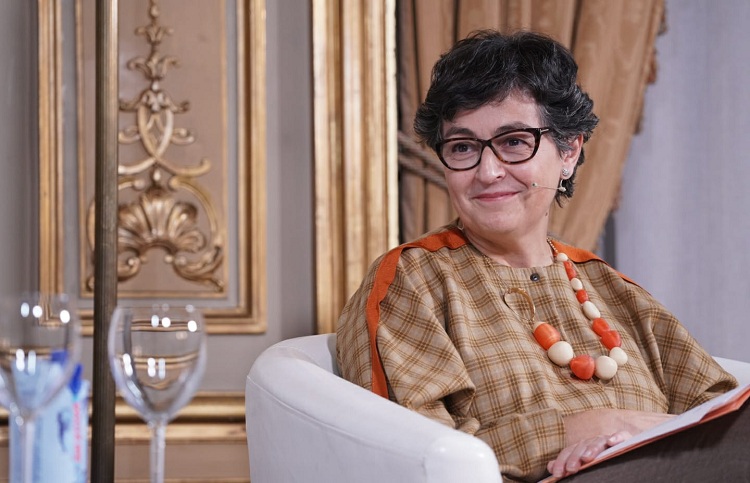The Diplomat
The former Minister of Foreign Affairs, Arancha González Laya, declared yesterday before the judge that the entry into Spain of the leader of the Polisario Front, Brahim Ghali, was carried out “in accordance with the law”, although she invoked the Official Secrets Law to refuse to clarify which members of the Government made the decisions in this case.
González Laya appeared yesterday before Rafael Lasala, head of the Court of Instruction number 7 of Zaragoza, as an investigator for the alleged illegal entry of Ghali in Spain, which took place last April 18 and which triggered a serious diplomatic crisis with Morocco. The judge summoned the former minister after her former chief of staff, Camilo Villarino, assured the magistrate on September 13 that he had received a call from González Laya informing him that “the decision had been taken to admit Brahim Ghali for humanitarian reasons in Spain” and gave him “a series of indications and instructions”.
During her appearance before the judge, which lasted an hour and in which she was accompanied by a lawyer from the State Attorney’s Office, the former minister assured that Ghali’s entry “was made in accordance with the Law”, as she herself declared to the media at the exit of the Palace of Justice. According to González Laya, “the spirit” in which she “wanted to appear” before the judge is to facilitate “transparency” and provide all the necessary explanations to advance in the case.
Sources of the private prosecution present at the hearing later assured the media that the former minister had refused to answer the questions of the accusations and to reveal which members of the Government had participated in this matter, alleging that it was reserved information that could put at risk the security and defense of the State and therefore invoking the Law of Official Secrets. On the other hand, Gonzalez Laya did answer the questions of the judge, the State Attorney’s Office and the Public Prosecutor’s Office.
The private prosecution is convinced that the former minister coordinated with other Ministries, especially with the Interior, the entry of Ghali, so it has requested that the testimonies of the former first vice-president of the Spanish Government, Carmen Calvo (specifically, of her Cabinet director, María Isabel Valldecabres); and of Susana Crisóstomo, chief of Cabinet of the Minister of the Interior, Fernando Grande-Marlaska, be included in the proceedings.
In his statement, Villarino assured that the decision to let Ghali in did not come exclusively from the former minister. “She told me that the decision had been made. I don’t think it was her alone by herself and before herself. The Government is not a kingdom of taifas”, assured the former number two of the minister, who also specified that the chief of staff of the then first vice-president of the Government, Carmen Calvo, had called him on behalf of “her boss” to know the details about the entry of the Polisario leader. For all this, the judge also summoned as witnesses María Isabel Valldecabres and Susana Crisóstomo, who will testify on October 18.
The PP believes that the instructions for the operation have come “from above”, specifically from a “Mr. X” that it has identified with the President of the Government, Pedro Sánchez. The head of the Executive eluded the week, before the plenary of the Congress, two questions of the leader of the PP, Pablo Casado, on this matter. For his part, the Minister of Foreign Affairs, José Manuel Albares, assured in the same session of Congress that he had “full confidence that the Government complies with the law” and that “in this case it has also done so”.
Brahim Ghali landed at the Zaragoza Air Base on April 18 without passing border controls or documentation, after which he was transferred in an ambulance and admitted, under a false identity, to the San Pedro de Logroño hospital to be treated for COVID-19. The former minister always maintained that Ghali’s entry was carried out for “humanitarian reasons”. González Laya was dismissed barely a month after the outbreak of the diplomatic crisis with Morocco, which resulted in a massive and uncontrolled entry of immigrants into Ceuta with the complicity of Rabat, as well as in a call for consultations of the Moroccan ambassador in Madrid and a whole series of public accusations against Spain.







